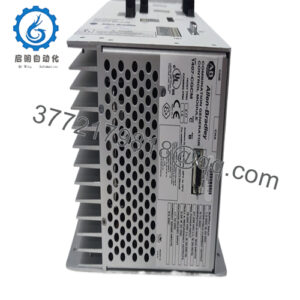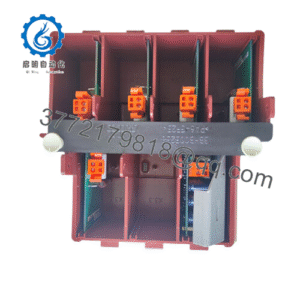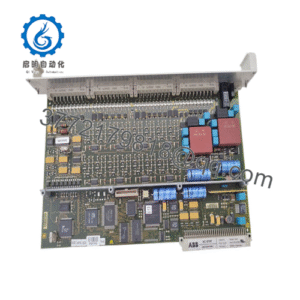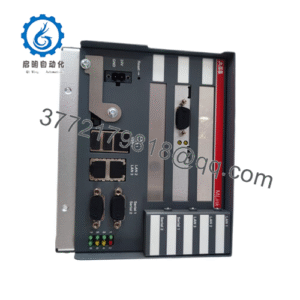Description
- 07KR51 220VDC
ABB 07KR51 220VDC – Technical Overview
The ABB 07KR51 is a high-reliability controller module designed for ABB’s Advant / DCS control systems, optimized for 220 V DC input applications. It’s commonly used in process control environments where robust power handling and stable logic execution are critical.
Key Specifications
| Specification | Details |
|---|---|
| Manufacturer | ABB |
| Model | 07KR51 |
| Rated Input Voltage | 220 V DC |
| Input Voltage Range | 198–242 V DC |
| Power Consumption | 50–60 W typical |
| Output Type | Logic / control signals to backplane and connected I/O modules |
| Operating Temperature | -20 °C to +70 °C |
| Storage Temperature | -40 °C to +85 °C |
| Humidity Range | 5–95% non-condensing |
| Mounting | Standard rack installation in Advant DCS backplane |
| Communications | Proprietary ABB backplane protocols |
| Diagnostics | Onboard LED indicators for power, fault, and operational status |
| Protection | Overvoltage, reverse polarity protection integrated |
Functional Highlights
- High Voltage Input Support: Built to operate reliably on 220 V DC supply, making it suitable for high-power control racks.
- Stability & Reliability: Designed for continuous operation in harsh industrial conditions, including vibration, EMI, and temperature fluctuations.
- Modular Integration: Interfaces seamlessly with ABB Advant backplanes and compatible I/O modules, providing stable control and signal processing.
- Diagnostics & Maintenance: LEDs provide quick visual status; minimal intervention required under normal operation.
- Safety Features: Integrated protection circuitry ensures safe operation against overvoltage and wiring errors.
Installation & Field Tips
- Ensure correct polarity when connecting 220 V DC supply; reverse wiring can trigger internal protection and prevent module startup.
- Backplane seating is critical—misalignment can cause intermittent faults or communication errors.
- Allow for adequate ventilation; though the module is robust, heat dissipation improves lifespan.
- During startup, power the module before connecting critical I/O to avoid transients affecting downstream devices.
- Regularly inspect LED indicators for anomalies, especially in older systems.
- 07KR51 220VDC
Performance & Reliability Notes
From my experience with ABB high-voltage DCS modules, units like 07KR51 are bulletproof. In petrochemical and power generation plants, these modules often run 24/7 for a decade without failure. Their combination of stable 220 V DC handling, robust design, and simple diagnostics makes them ideal for legacy control systems that require continuous uptime.
How the Product Works & Fits into a System
The ABB 07KR51 220VDC serves as a central processor and I/O unit within ABB’s Advant Controller 31 (AC31) platform. It combines embedded processing for local control logic execution with direct interfacing to field devices through its isolated digital inputs and relay outputs with a nominal voltage of 220 V DC. The module supports communications through standard serial protocols such as CS31, Modbus, and ASCII over RS-232 or RS-485 interfaces, allowing connection to distributed systems and engineering workstations for programming and diagnostics. The unit’s rugged design supports mounting in industrial control racks and is optimized for environments demanding stable 220 V DC power operation, contributing to reliable, real-time process control.
Technical Highlights Summary
| Specification | Details |
|---|---|
| Model Number | ABB 07KR51 220VDC |
| Brand | ABB |
| Type | Central Control Unit with I/O |
| Digital Inputs | 8 isolated, 220 V DC nominal |
| Relay Outputs | 6 relays, 250 V AC / 2 A |
| Communication | CS31, RS-232, RS-485, Modbus |
| Power Supply | 220 V DC nominal |
| Operating Temp Range | -20°C to +70°C |
| Dimensions | 120 mm x 93 mm x 84 mm |
| Weight | Approx. 800 g |
Let me tell you, the ABB 07KR51 220VDC isn’t the flashiest module in the Advant OCS family, but it’s one of those parts that’ll quietly save your bacon when you need it most. I first ran into this relay output module back in 2009 at a cement plant in Egypt—scorching heat, dust everywhere, and a control system that had been running since the late ’90s. The 07KR51 was handling critical interlock logic for the kiln, and despite the brutal environment, it just kept chugging along.
What You’re Actually Getting
This is a 220VDC relay output module designed for ABB’s Advant OCS (Open Control System) platform. It’s part of that older generation of DCS hardware that, honestly, a lot of plants are still running because they’re too expensive to replace wholesale. The ABB 07KR51 gives you discrete relay outputs that can handle higher DC voltages—perfect for driving solenoids, contactors, and other field devices that need a solid, isolated switching action.
Here’s the nuts and bolts:
- Supply Voltage: 220VDC nominal
- Output Type: Relay contacts (normally isolated)
- Typical Channels: 8 relay outputs (depending on config)
- Operating Temp: -10°C to 55°C (standard industrial range)
- Mounting: Standard ABB Advant rack mounting
Where This Thing Really Earns Its Keep
I’ve seen the 07KR51 220VDC in petrochemical plants, power generation facilities, and heavy manufacturing lines. It’s particularly handy when you’re dealing with legacy systems that require galvanic isolation between the control side and high-voltage field devices. One project I was on in a Ukrainian steel mill—this was back in 2013—we used these modules to control hydraulic valve packs on a rolling mill. The electrical noise in that place could fry a solid-state output in a heartbeat, but those relay contacts? Rock solid.
The beauty of relay outputs is their simplicity. No MOSFETs to blow, no mysterious failures due to voltage spikes. When a relay contact closes, it closes. When it opens, it opens. You can troubleshoot it with a multimeter and your eyes.
The Real Talk: What to Watch For
Here’s what they don’t put in the glossy brochures. The ABB 07KR51 is aging hardware. ABB has moved on to newer platforms like the 800xA series, which means:
- Spare parts availability is getting sketchy. You’re often buying refurbished or surplus stock. Make sure your supplier actually has it in hand before you commit to a shutdown.
- Documentation can be sparse. If you don’t have the original manuals, tracking down wiring diagrams and configuration details can be a pain. I’ve spent hours reverse-engineering these things on-site.
- Relay contact life. Relays have a finite mechanical life. If you’re switching inductive loads at full voltage, expect to replace this module every 5-7 years in heavy-duty applications.
That said, if you’re maintaining an existing Advant OCS installation, the 07KR51 220VDC is non-negotiable. You can’t just swap it out for a newer module without significant engineering work.
Installation Pro Tip
When you’re installing or replacing one of these, always check the backplane connections first. I’ve seen more than one case where an intermittent fault wasn’t the module at all—it was a corroded or loose backplane connector. Clean those contacts with electrical cleaner, apply a thin coat of dielectric grease, and you’ll save yourself a callback.
Also, label every single wire. I know it sounds obvious, but in a rack full of 20-year-old modules with sun-faded labels, you’ll thank me when you’re tracing a fault at 3 AM.
The Bottom Line
The ABB 07KR51 220VDC is a workhorse relay output module for aging but still-operational Advant OCS systems. It’s not cutting-edge, but it’s proven, robust, and—if you can source it—absolutely worth keeping in your spares inventory. If your plant is still running ABB Advant gear, stock at least two of these. When one fails during a production run, you don’t want to be scrambling on the phone with surplus dealers while your line is down.
Would I recommend it for a greenfield project in 2025? Absolutely not. But for keeping legacy systems alive? It’s a lifeline.

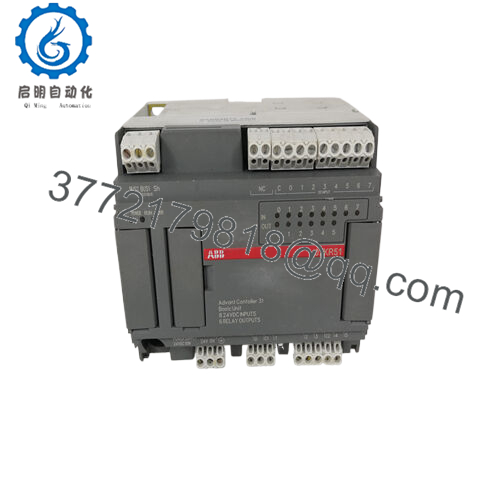
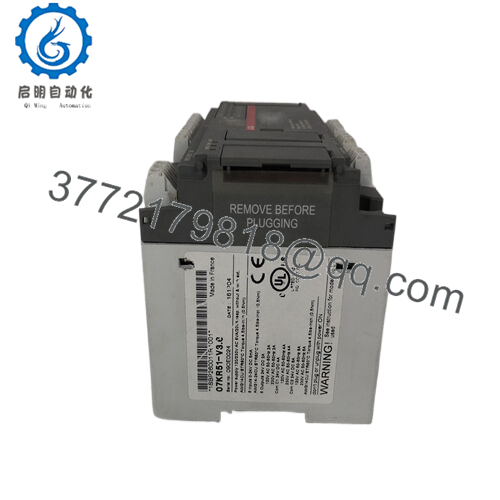
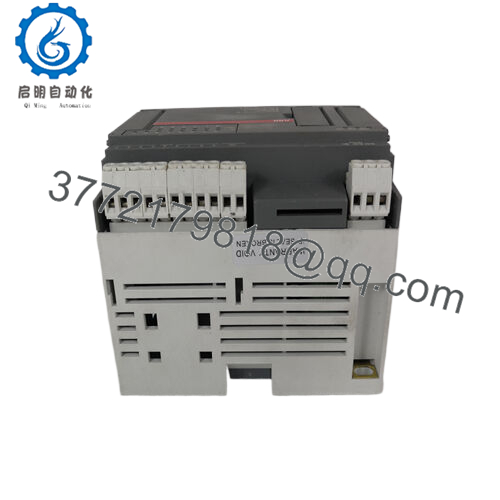
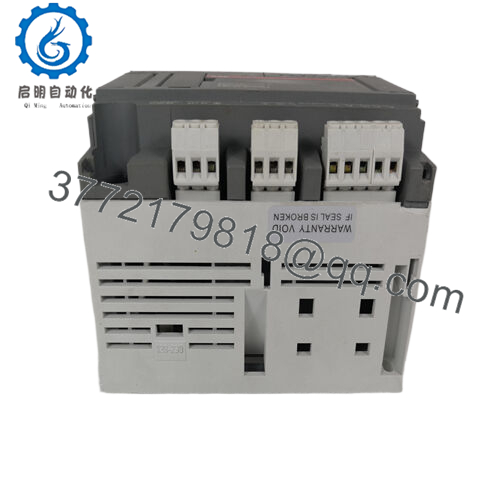
 WhatsApp: +86 16626708626
WhatsApp: +86 16626708626 Email:
Email:  Phone: +86 16626708626
Phone: +86 16626708626